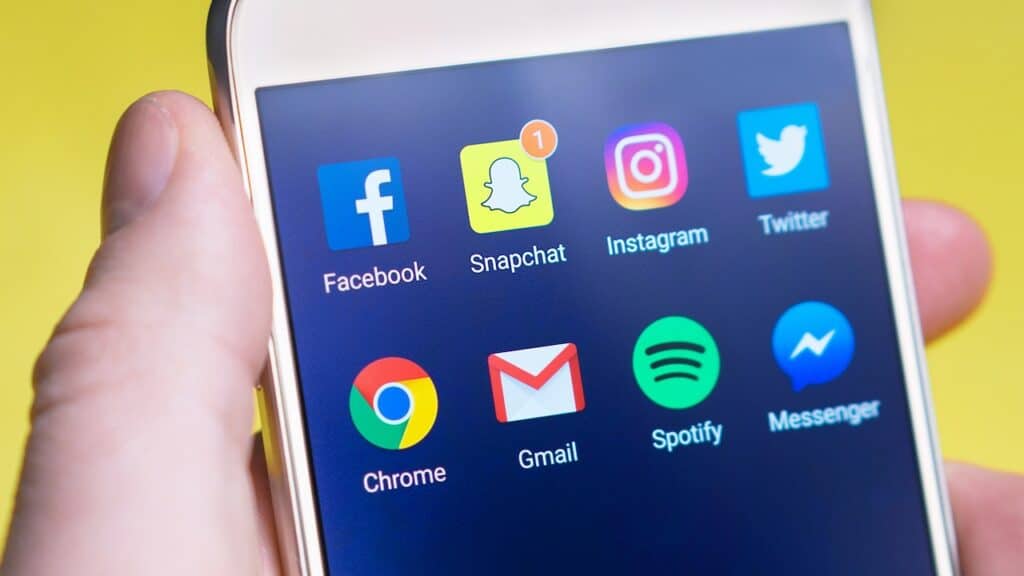
The use of social networks among young people is almost universal: up to 95 percent of adolescents, and even 40 percent of children between the ages of 8 and 12, use social networks. However, the federal government is concerned about the impact of social networks on the mental health of children and adolescents, since there is not enough evidence to determine whether the use of social networks is safe enough for them.
This was stated in his 2023 report by the US Surgeon General's Office, Dr. Vivek Murthy, where he acknowledged that there is little information on the impact of social networks on mental health, especially during adolescence, a highly vulnerable period for brain development.
However, he highlighted that social networks have positive and negative effects on children and adolescents.
In this sense, he pointed out that social media affect children and adolescents in different ways depending on their individual strengths and vulnerabilities, as well as cultural, historical and socioeconomic factors.
The office belonging to US Department of Health and Human Services, specified that social networks can be beneficial for some children, for example, by serving as a source of connection for often marginalized youth, such as the LGBTQ+ community and people with disabilities, by offering positive or identity-affirming content, by creating a space for self-expression and by helping young people feel accepted.
However, he said, there is increasing data indicating that there are reasons to be concerned about the risk that the use of social networks harms children and adolescents.
The text explained that Children and adolescents who use social networks are often exposed to extreme, inappropriate and harmful content, and those who spend more than 3 hours a day on social networks have double the risk of mental health problems, including symptoms of depression and anxiety.
This is very worrying, as a recent survey among teens showed that on average they spend 3.5 hours a day on social media.
Why this growing concern?
Dr. Murthy pointed out that social media can expose children to dangerous content by perpetuating body dissatisfaction, disordered eating behaviors, social comparison, and low self-esteem, especially among adolescent girls.
When asked about the impact of social media on their body image, he noted, 46 percent of 13- to 17-year-olds said social media makes them feel worse, 40 percent said it doesn't make them feel better or not. no worse, and only 14 percent said it makes them feel better.
In addition, he explained that approximately two thirds ?64 percent? of teens are "often" or "sometimes" exposed to hate-based content.
In this regard, he said that some social media platforms display content related to suicide and self-harm, including live representations of self-injurious acts, content that, in some tragic cases, has been linked to child deaths.
Social media use can be excessive and problematic for some children
On a typical weekday, the report noted, nearly one in three teens say they use screens ?particularly social media? until midnight or later. While studies have shown a relationship between excessive social media use and poor sleep quality, reduced sleep duration, sleep difficulties, and depression among young people.
Also, a third or more of girls aged 11-15 say they feel "addicted" to certain social media platforms and more than half of teens say they would find it hard to give them up.
The US Surgeon General pointed out that there is great concern among the scientific community that lack of access to data and a lack of transparency from technology companies have been obstacles to understanding the scope and magnitude of the Impact of social networks on the mental health and well-being of children and adolescents.
Although more research is needed to fully understand the impact of social media, this gap in knowledge cannot be an excuse for inaction, he stressed.
a way to go
The "Surgeon General's Advice" report outlines some immediate actions to take to make social media safer and healthier for young people.
“This burden cannot simply fall on parents and children. We must undertake a multifaceted effort to maximize the benefits and reduce the risk of harm posed by social media, with action by groups across the spectrum: policy makers, tech companies, researchers, families, and children and adolescents themselves,” explained the also Vice Admiral Vivek H. Murthy.
In turn, he said that policy makers can take measures to strengthen security standards and limit access so that social networks are safer for children of all ages, better protect their privacy, support digital and media literacy , and fund new research.
Similarly, it recommended that technology companies can better and more transparently assess the impact of their products on children, share data with independent researchers to increase our collective understanding of the impacts, make design and development decisions that prioritize safety and health ?including protection of children's privacy and better compliance with age minimums? and improve systems to provide effective and timely responses to complaints.
Parents and caregivers can make plans at home, such as setting up tech-free zones that help protect sleep and better foster in-person relationships, teaching kids and teens responsible online behavior and modeling that behavior, and reporting problematic content and activities, he said.
In children and adolescents, he suggested adopting healthy practices such as limiting the time they spend on the platforms, blocking unwanted content, being careful when sharing personal information and letting them know if they or a friend need help or see harassment or abuse on the platforms.
While researchers, she said, can prioritize research on social media and youth mental health, it can support standard setting and evaluation of best practices to support children's health.
You may be interested in: They will study the impact of opioids and fentanyl in San Mateo County


